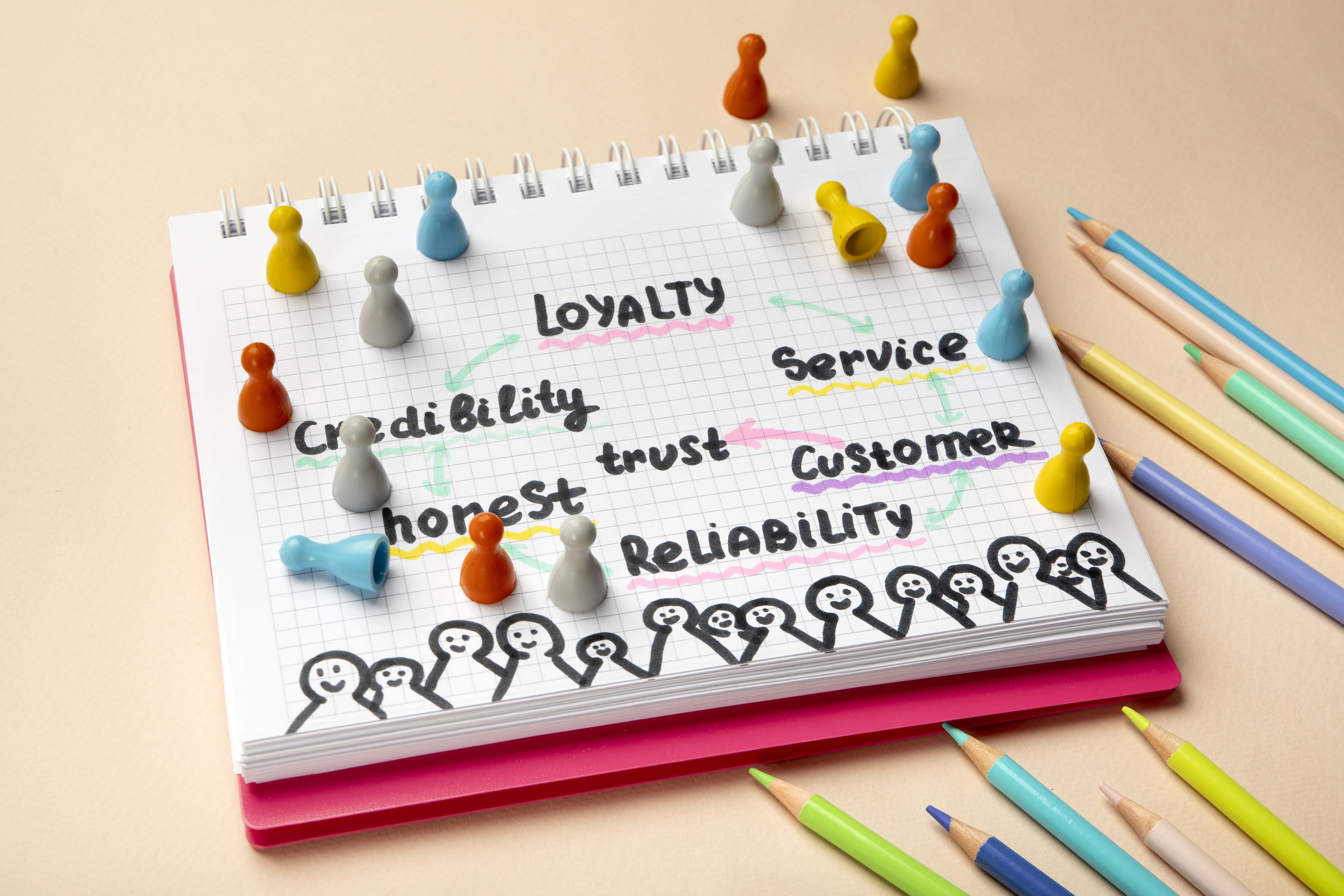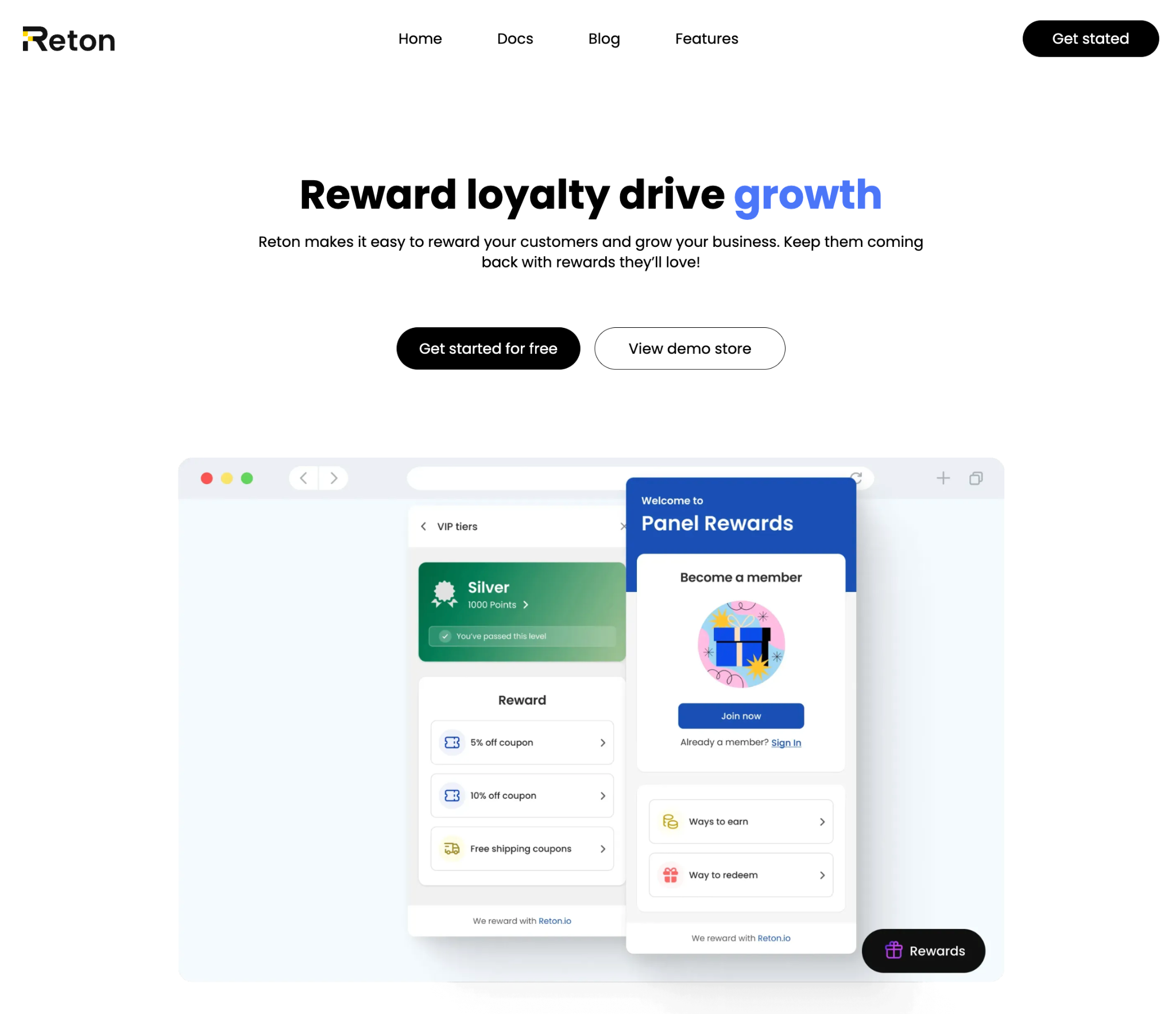
Sign up for a free trial and your first month is $1. Sign up now


In today’s crowded online marketplace, attracting new customers is only half the battle. The true measure of success for any business lies in its ability to keep customers coming back. This is where customer loyalty plays a vital role. Loyal customers don’t just make repeat purchases but they engage with your brand, recommend it to others, and even defend it when faced with competition.
Yet many businesses underestimate the power of nurturing long-term relationships, focusing too heavily on acquisition rather than retention. Studies consistently show that retaining an existing customer is far more cost-effective than acquiring a new one. Even better, loyal buyers often spend more per order over time.
So, how do you build this loyalty in a way that feels authentic and sustainable? Below, we’ll explore nine proven strategies that can transform one-time shoppers into lifelong brand advocates.
Customer loyalty goes beyond repeat purchases, but it’s about the emotional connection customers feel with your brand. A loyal customer chooses your products over competitors, even if alternatives are cheaper or more convenient. They trust you, they value the experience you provide, and they see your brand as part of their lifestyle.
These customers typically:
In essence, customer loyalty is the outcome of positive experiences repeated over time. It’s built on trust, reliability, and genuine value. Once achieved, it becomes one of your business’s strongest assets, providing a foundation for growth and stability.
Customer loyalty isn’t just a “nice-to-have”—it’s a major driver of profitability. Here’s why:
Think of loyalty as a safety net for your business. While marketing campaigns bring in new traffic, it’s your loyal customers who provide the consistent revenue stream and brand credibility that allow you to scale sustainably.
Customers today are value-driven, they don’t just buy what you sell, they buy into why you sell it. Sharing your brand values helps create a deeper bond beyond transactions. For instance, a fashion brand that emphasizes sustainability will resonate with eco-conscious shoppers, while a local food business that supports farmers may attract community-minded buyers.
Communicate these values clearly across your website, social media, and packaging. Consistency is crucial: if you promote eco-friendly values, your shipping materials should reflect that commitment. Storytelling also plays a role, share behind-the-scenes stories of your team, suppliers, or charitable initiatives.
When customers align with your values, they feel good about supporting you. This emotional connection builds loyalty because they see your brand as more than just a business—it becomes a reflection of their own beliefs and lifestyle. Over time, values-driven branding helps you stand out and create customers who are loyal for reasons beyond price.
In a world where customers have endless choices, service quality often makes the difference between keeping a buyer or losing them to competitors. Excellent customer service goes far beyond answering emails, it’s about building trust, empathy, and reliability at every touchpoint.
This starts from the first moment customers land on your site. Is it easy to navigate? Do you provide enough product details? Once they purchase, do you communicate clearly about shipping and follow-up support? If a problem arises, do you respond quickly with a helpful solution?
Offering multi-channel support (live chat, email, social media) ensures accessibility. Speed also matters, a prompt, kind response can turn frustration into appreciation. For example, Zappos has built legendary loyalty by solving customer issues creatively and generously.
When customers feel cared for, they are far more forgiving of mistakes and more likely to return. Excellent service creates trust, and trust is the foundation of loyalty.
Loyalty programs are a proven way to encourage repeat purchases while making customers feel valued. Instead of one-off transactions, they create an ongoing relationship where buyers are rewarded for their engagement.
Point-based systems let shoppers earn rewards with every purchase, while tiered programs offer exclusive benefits for reaching certain milestones. This sense of progression keeps customers motivated to return. But the best loyalty programs don’t just focus on discounts—they gamify the shopping experience and offer perks that feel personal and exciting.
Tools like Reton loyalty app make it easy to design customized programs on Shopify. With Reton, you can reward purchases, referrals, reviews, or even social media engagement. You can also create unique perks like early access to launches or free gifts for top customers. This app is free and you can easily install it from Shopify app store.

By turning loyalty into an enjoyable, rewarding system, Reton helps you transform casual shoppers into lifelong advocates who choose your store again and again.
Customers who feel part of a community are more likely to remain loyal. Beyond selling products, brands can nurture belonging by creating spaces where customers connect with one another.
For example, fitness brands often run Facebook groups where customers share workout tips, progress photos, and encouragement. Beauty brands may host Instagram hashtag challenges where fans showcase their looks using branded products. These communities transform shopping into a lifestyle experience, fostering emotional attachment.
As a business owner, you can strengthen these connections by actively engaging—sharing resources, running polls, or featuring customer stories. This two-way communication builds trust and makes customers feel like insiders rather than outsiders.
A connected community also acts as organic marketing: customers will share their experiences publicly, drawing in new buyers. When your brand becomes a hub for shared passion, customers are less likely to leave because they’re invested in the relationships as much as the products.
Customer reviews aren’t just marketing tools, but they’re loyalty builders. When buyers leave feedback, they feel acknowledged and involved in your brand’s growth. This sense of contribution strengthens their connection.
Reviews also build credibility for new customers. A collection of positive testimonials acts as social proof, showing that others trust and enjoy your products. Even negative reviews can increase loyalty when handled well, responding politely, addressing issues, and offering solutions demonstrates professionalism and care.
To streamline this, apps like Ryviu make it easy to collect, display, and manage reviews. You can request feedback via email, present reviews in eye-catching layouts, and create dedicated testimonial pages.

Ryviu makes it simple to collect reviews from customers and share them with the world.
By encouraging reviews, you not only boost conversions but also give customers a voice. The more they see their input shaping your brand, the stronger their loyalty becomes. A store that listens is a store customers return to.
Personalization is no longer optional, but it’s expected. Customers want experiences tailored to their preferences, and brands that deliver this stand out in competitive markets.
Personalization can take many forms: product recommendations based on past purchases, email campaigns tailored to browsing behavior, or personalized discount codes for birthdays. Even addressing customers by name in communication adds a human touch.
Big players like Amazon thrive on personalized recommendations, but smaller stores can achieve similar results with Shopify integrations and email marketing tools. For instance, sending a curated collection of products after a purchase shows attentiveness and boosts cross-sell opportunities.
This level of personalization creates a sense of exclusivity, customers feel recognized as individuals rather than generic buyers. When shoppers believe your store understands their unique needs, they’re more likely to return. Over time, personalization transforms casual buyers into loyal supporters who feel your brand truly “gets” them.
Surprises are powerful loyalty builders because they tap into emotion. Unexpected gestures show that you value customers as people, not just transactions.
Examples include handwritten thank-you notes, free samples in packages, or special birthday discounts. These gestures don’t need to be costly; it’s the thought and personalization that leave a lasting impression. For instance, some skincare brands include mini versions of new products with every order, turning customers into testers and brand evangelists.
Small surprises create delight, and delighted customers are more likely to share their experiences with friends or on social media. This not only builds loyalty but also generates free word-of-mouth marketing.
By consistently adding small, thoughtful touches, you differentiate your brand from competitors. Customers remember how you made them feel, and when they feel appreciated, they return. A culture of surprise and delight ensures loyalty is driven by emotion as much as value.
The relationship doesn’t end at checkout, it’s only the beginning. Many businesses lose opportunities by neglecting the post-purchase experience.
Follow-up communication shows customers you care about their journey. This might include thank-you emails, product usage tips, or invitations to join loyalty programs. Offering cross-sell or upsell suggestions (like accessories for a main product) can also enhance value while increasing revenue.
For example, if a customer buys a camera, follow up with tutorials on photography techniques, recommendations for lenses, and care instructions. This ongoing engagement strengthens trust and reduces buyer’s remorse.
Post-purchase touchpoints also provide opportunities to ask for feedback or reviews. When customers feel supported beyond the sale, they’re more likely to buy again. Over time, a strong post-purchase journey turns first-time buyers into repeat shoppers who see your brand as reliable and customer-focused.
Returns are often seen as a loss, but they can actually build loyalty when handled well. Customers hesitate to buy online because they fear products won’t meet expectations. A clear, flexible return policy eliminates this barrier and increases confidence.
When shoppers know they can return or exchange easily, they’re more willing to take the leap. Big brands like Amazon and Zappos are trusted because of their no-hassle return policies. For smaller businesses, even a 14–30 day return window can make a significant difference.
Transparency is key, which makes sure your policy is easy to understand and not buried in fine print. A smooth return experience reassures customers that you value fairness over short-term profits.
Interestingly, generous policies don’t always increase return rates but do increase purchases. By showing customers you stand behind your products, you build trust, and trust naturally leads to long-term loyalty.
Building customer loyalty is a marathon, not a sprint. It requires consistent effort, thoughtful strategies, and genuine care for your customers. From excellent service and personalized experiences to loyalty programs powered by tools like Reton and review management through Ryviu, every action you take can bring customers closer to your brand.
Loyal customers are more than repeat buyers. They’re advocates who help your business grow through referrals, reviews, and word-of-mouth. By implementing these nine strategies, you’ll not only increase retention but also create a loyal customer base that fuels sustainable growth.